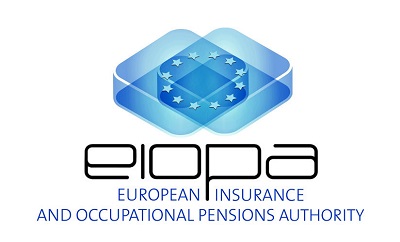The European Insurance and Occupational Pensions Authority (EIOPA) has observed “signs of deterioration” in the European reinsurance sector, which it says could have long-term implications for the EU protection gap.
 The comments came as part of a new Financial Stability Report from EIOPA that addresses key financial stability risks in the European insurance and pension sector.
The comments came as part of a new Financial Stability Report from EIOPA that addresses key financial stability risks in the European insurance and pension sector.
In the report, the Authority notes that the reinsurance sector has been exposed to unprecedented uncertainty since the outbreak of the COVID-19, in addition to high worldwide catastrophe activity.
Against this background, the sector has seen a reduction of gross written premiums for life reinsurance and a worsening of underwriting profitability for non-life business.
Capital positions of reinsurers also decreased in the first half of 2020, but then partially recovered at the end of the year.
But looking ahead, EIOPA believes that the higher expected frequency and severity of natural disasters combined with a potential reduction in reinsurance coverage, aimed at reducing potential unknown losses arising from the pandemic, could lead to negative implications in the EU market.
What’s more, while the impact of the pandemic on European economies was reduced by extensive fiscal measures, analysts note that some negative effects might become visible only when the introduced measures will phase out.
In particular, increased unemployment and corporate credit downgrades would have a negative impact on both insurance and pension sectors.
And while expectations for 2021 point to growth for the European economy, an asymmetric recovery across countries could exacerbate vulnerabilities in the aftermath of pandemic
Despite these concerns, Vice-Chairperson Peter Braumüller noted that regulatory measures such as the introduction of Solvency II helped to keep the insurance and reinsurance markets more resilient than they otherwise would have been.
“While the EU economy is still subject to high risks, the end of the crisis will allow time to analyse the lessons learned,” he said. “Some have already been reflected in the Solvency II review, where EIOPA’s approach focused on improving the existing regulation based on the experience during the first years of application and taking into account the changes in the current economic context.
“In this respect, EIOPA recommended in its opinion that supervisors should have additional powers, including a macroprudential toolkit to tackle systemic risk, such as restrictions on distributions of dividends to preserve insurers’ financial position in periods of extremely adverse developments.”
The report also stressed the importance of staying focused on new emerging risks such as cyber and climate risk, particularly given the rise in cyber attacks resulting from the move to home-working.
Environmental, social and governance factors that increasingly shape investment decisions of insurers and pension funds and affect their underwriting, also remain one of the focal points for the insurance and pension industry, EIOPA added.


